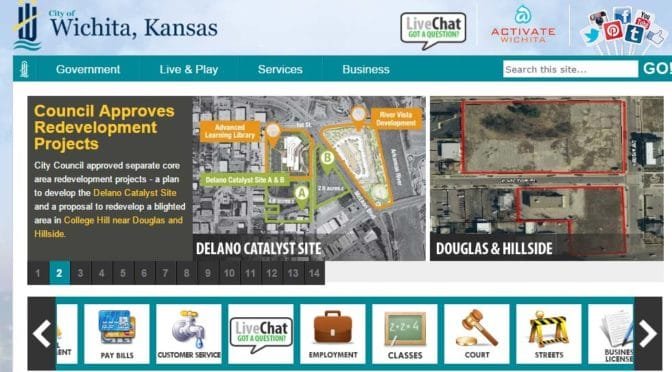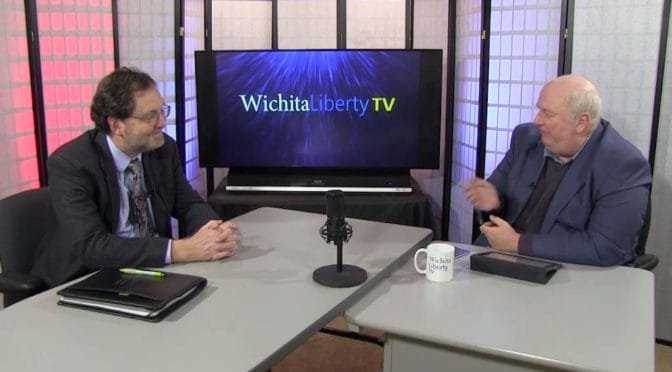Tag: Featured
-

WichitaLiberty.TV: Blight, guns, testimony, and KPERS
Co-host Karl Peterjohn joins Bob Weeks to discuss the fight on blight and property rights, guns on campus, availability of testimony in the Kansas Legislature, and KPERS, our state’s retirement system.
-

Analysis of proposed tax changes in Kansas
Proposed changes in the Kansas motor fuel tax and sales tax on groceries affects households in different ways.
-

Fake news, meet fake research
Do you think we have a problem with fake news? Let me introduce you to fake research.
-

Availability of testimony in the Kansas Legislature
It is easy to provide Kansans with written testimony from the Kansas Legislature. At least I think so.
-

Activate Wichita, an embarrassment
A communications initiative of the City of Wichita brings embarrassment to our city.
-

Wichita check register
A records request to the City of Wichita results in data as well as insight into the city’s attitude towards empowering citizens with data.
-

WichitaLiberty.TV: Kansas politics, school choice, and asset forfeiture
Co-host Karl Peterjohn joins Bob Weeks to discuss a few big developments in Kansas politics, school choice, and civil asset forfeiture.
-

In Kansas, the war on blight continues
Kansas governments are trying — again — to expand their powers to take property to the detriment of one of the fundamental rights of citizens: private property rights.
-

Kansas civil asset forfeiture
The law of Kansas civil asset forfeiture is among the worst in the nation, and demands reform.
-

Accountability in Kansas public schools
Critics of school choice say there is no accountability outside the traditional public schools. Here are the standards Kansas used to hold its schools accountable.
-

WichitaLiberty.TV: Confirming a cabinet, Kansas spending, and Kansas finances
Co-host Karl Peterjohn and Bob Weeks discuss technological progress, confirmation hearings, whether Kansas will trim spending or raise taxes, and Kansas fiscal nightmares. Episode 135, broadcast January 22, 2017.
-

School choice in Kansas: Some have it. Many do not.
Kansas non-profit executives work to deny low-income families the school choice opportunities that executive salaries can afford.